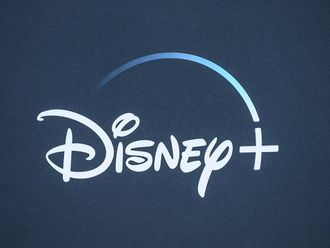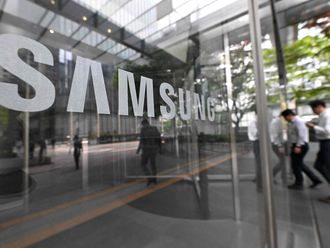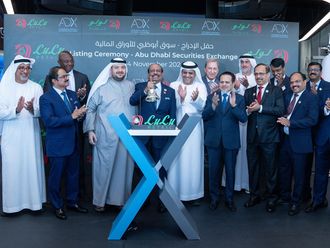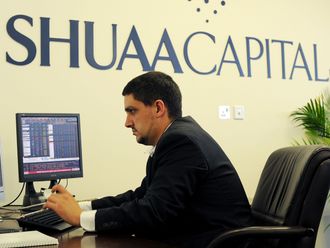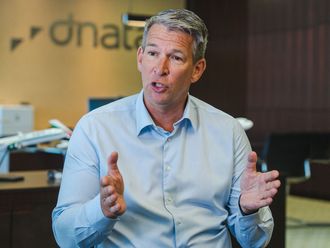Dubai: His Highness Shaikh Mohammad Bin Rashid Al Maktoum, Vice-President and Prime Minister of the UAE and Ruler of Dubai, made an extraordinary comment last month, "… we are conducting feasibility studies to evaluate the costs and benefits of a bid [for the 2020 Olympics]."
Qatar submitted a bid to host the 2022 World Cup, and bid committee Chairman, Shaikh Mohammad Khalifa Al Thani, said, "… A World Cup in Qatar will be a new World Cup, bringing people and different cultures together in the name of football…"
I've been involved in sports for 40 years tennis, bicycling and basketball and, after reading such comments, a question comes to mind: what role should Islamic finance play in ‘local' sports, besides offering Islamic mortgages for villas and apartments in, say, Dubai Sports City or ‘guidance' on appropriate attire and logo/emblem?
Sports builds friendship bridges across cultures, countries and faiths by uniting people, be it the Olympics or World Cup, and Islamic finance needs to be involved in a variety of capacities.
It will not only be part of the necessary brand building exercise by showing the progressive side of this embryonic industry and encourage more media stories from the business section to the main section but also show leadership in addressing local health issues with sports.
GCC Sporting Events
In the GCC/Malaysia, which are hubs for Islamic finance, there are international sporting events — such as in tennis and golf, Formula One and Asian Games which are attended by bankable customers. However, are the Islamic banks major (or even minor) sponsors?
Do Islamic banks support any of the local or regional teams and star athletes with their name on their stadiums or jerseys, as commonly found in, say, US and UK?
The young and old, rich and poor follow sports passionately, hence, an opportunity to not only affiliate Islamic banks to international ‘halal' entertainment, but also recruit and add to customer base.
Naming rights
A Dubai metro train station having naming rights from an Islamic bank, while interesting, may not have the same impact as naming, as say, KFH, DIB or Al Hilal Football Stadium.
Regional banks have acquired companies, via proprietary capital allocation, including high end car company (Aston Martin), in the G-20 countries — either via Islamic financing or with an Islamic tranche, where target companies are within the permissible precepts of Islamic Sharia.
In the west, leisure sport companies like Callaway, Wilson (subsidiary of Amer Sports), with Callaway in the S&P Islamic equity indexes, are not national security issues [may be local icons], and have changed hands a few times.
Hence, an interesting Islamic finance acquisition consideration, with the possibility of also listing on a GCC exchange.
Unlike technology or finance companies, challenging business to understand, sports companies are an easier explanation.
Obviously, a thorough vetting, under the watchful eye of the Sharia Board on operations, non-compliant subsidiary ownership/revenue, athlete endorsement will be necessary.
With sporting companies come athletes, like Nike's entourage of Tiger Woods and David Beckham, who are corporate brand-building ambassadors.
Best examples
One of the best examples of a global athlete (in good standing) is the Chinese basketball superstar Yao Ming of the Houston Rockets who raised the profile of basketball and his endorsed products in China.
In basketball and football, retired Muslim international superstars like Kareem-Abdul Jabbar and Hakeem Olajuwon, and Zinedine Zidan are still global brand names, and Islamic banks should reach out to build sports academy in the region for the local youth and expatriate community.
Take this one step further and have exhibition games from teams in the National Basketball Association and the National Football League in the US, Premier League, games in UAE, Qatar, Bahrain or Malaysia, and Islamic banks take part in funding for such ‘delegations.'
Olympic sukuk
Imagine a consortium of Islamic banks, from GCC, Malaysia, Indonesia, Pakistan and Turkey, issuing and listing a Triple A, multiple currency, long dated benchmark size UK Olympic and Brazilian World Cup Sukuk, that is, beginning of real standardisation!
It would show the sukuk market's resilience and reach, deployment of petro-liquidity for legacy projects for indebted countries looking for ‘sports' funding, and make Islamic finance an important part of the global financial intermediation.
It would build bridges of two way commerce to new geographies: funding opportunity in, say, natural resource-rich South America looking for liquidity, with liquidity looking for diversified opportunity.
Shaikh Mohammad spoke of the ‘feasibility study' on making a bid for the Olympics, and Islamic banks need to be part of the study.
A good beginning is supporting selected Olympic sports and activities in the country, strategic acquisition of sports companies and obtaining appropriate brand ambassadors, in addition to having the collateral benefit off an enhanced image with cross sell appeal, potential recruits, new customer base, plus raise profile of local health issues with sports.
The writer is the Global Head of Islamic Finance, Thomson Reuters. Views expressed in this column are of the writer and cannot be attributed to his organisation.



